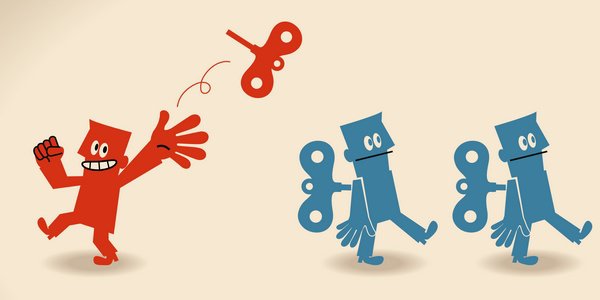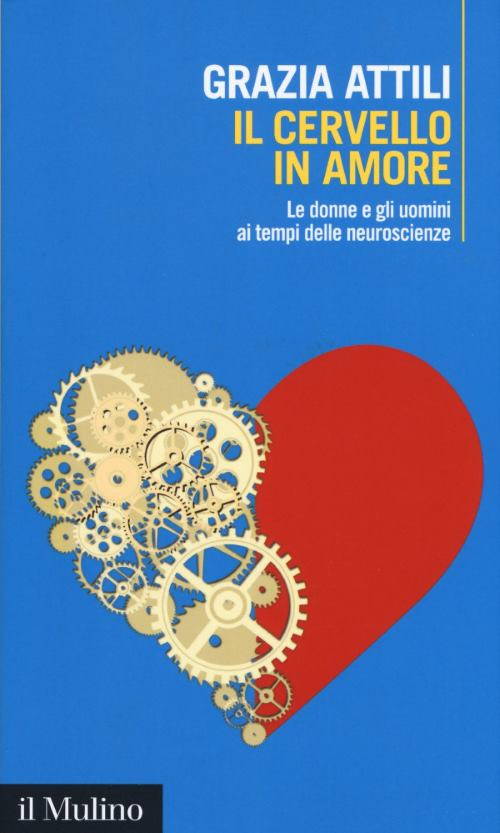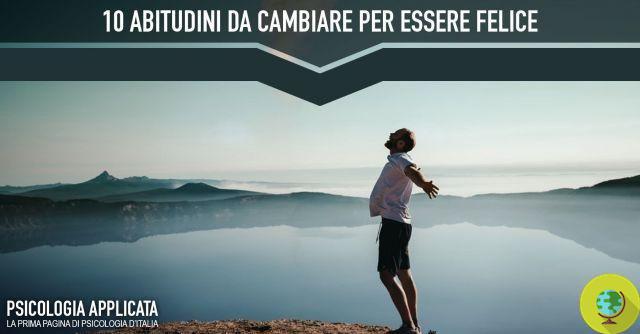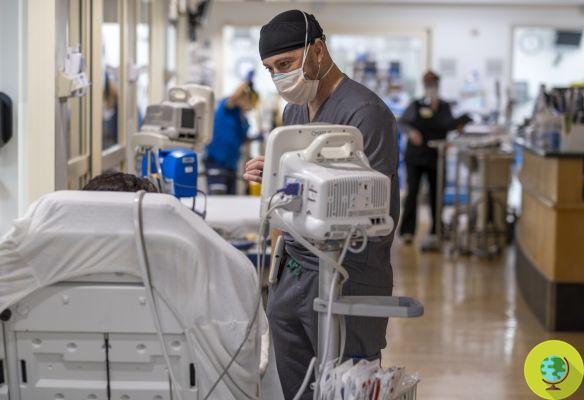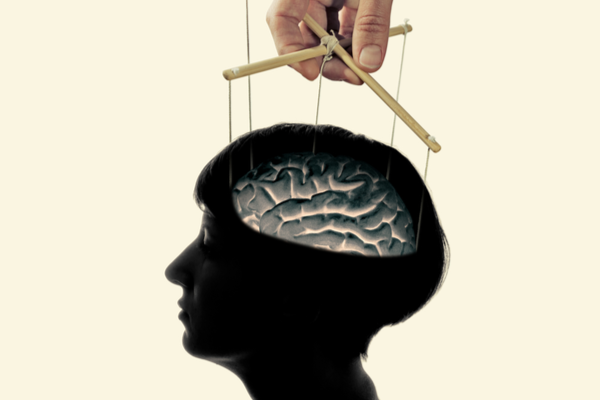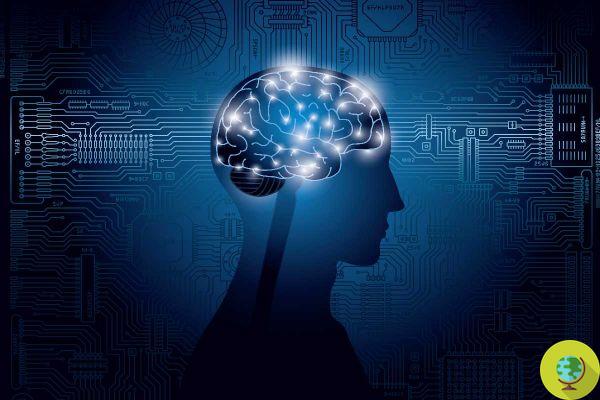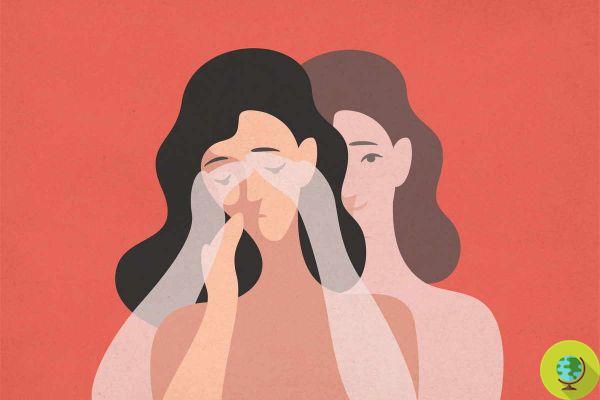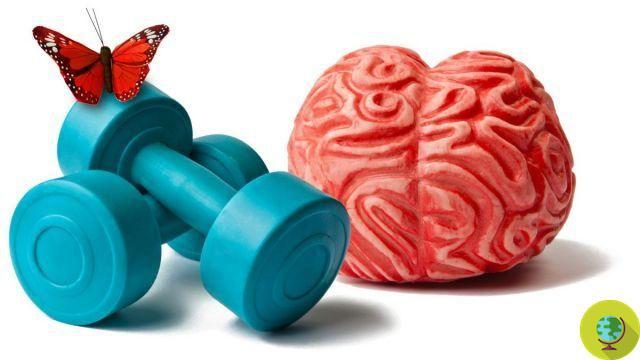
How to keep our brains healthy, active and functioning by reducing the risk of alterations in cognitive functioning (such as dementia, among these one of the best known forms is Alzheimer's) and to slow down its aging.
Don't store avocado like this: it's dangerous
Statistics in hand, Alzheimer's and other forms of cognitive impairment - which fall under the big "hat" of dementia - are on the rise.
If it is true that there are also individual predispositions at stake, determined by genetic factors, there is no doubt that the personal lifestyle can make a lot, a lot, the difference. All time. Science has now proved it: there are six foundations for the well-being of our brain; the more you "frequent" them, the more effectively you not only strengthen and maintain all brain functions (or slow down their decline) but also create new neural connections. The extraordinary and plasticity of the so-called "gray mass", in fact, works in our favor at any age.
There are six foundations for brain health, as we have said: regular exercise, healthy nutrition, good social relationships, mental stimulation and training, good rest and effective stress management.
Let's see them in detail. Plus a little exercise to do every night.
Index
Physical Activity
Studies by the Alzheimer's Research & Prevention Foundation have shown that exercising regularly can reduce the risk of developing cognitive impairment by up to 50% and - not least - can reduce deterioration in those in whom the disease has already occurred. In practice, physical activity stimulates the brain both to maintain old neuronal connections and to create new ones.
What is needed? At least 150 minutes of moderate exercise per week: preferably alternating cardio and muscle mass consolidation activities. For starters, walking and swimming are fine. It is also important to include exercises that involve balance and coordination of movements, such as yoga or tai chi.
Important: at any age, especially with the passing of the years, even a little (at least to begin with) is better than nothing. It's good to choose activities that you enjoy - even just 10 minutes of walking three times a week to start. After the first month, physical activity will become a habit like any other, something that feels makes you feel good.
Healthy nutrition
Alzheimer's is also called “diabetes of the brain”: inflammation and insulin resistance damage neurons and inhibit communication between brain cells. By correcting and making your eating habits healthier, you can reduce inflammation and thus protect the brain. What are the main indications? The first: to cook the dishes yourself, in order to ensure fresh, genuine ingredients, richer in nutrients and served without preservatives or additives.
Cut back on sugar: not just what you add in recipes but pay attention to all the sugars hidden in almost all packaged food products, including "dietetic" zero-fat ones. And, as for carbohydrates, choose them whole. Drastically resize the salt; for seasoning, use spices. And absolute moderation with wine.
And then green light for fruit and vegetables (the more you eat, the better, ranging between the various types and colors), legumes, extra virgin olive oil. Remove a reduce already processed food (in other words: the ready-made or semi-frozen dishes or not that we find in shopping malls of all sizes) and avoid fast food and any product containing partially hydrogenated oils.
Incorporate Omega3 fats, which seem to have a positive impact in Alzheimer's, helping to reduce beta-amyloid plaques: and yes, of course there are fish such as salmon, tuna, sardines which are good sources but for those who want to eat veg they are also found in nuts , seaweed, flaxseed and flaxseed oil, chia seeds, soybeans, pumpkin seeds, legumes, spinach, broccoli, alfalfa sprouts (to name a few).
And then, a cup of tea a daytaken regularly, it appears to support brain memory and alertness and slow down brain aging; oolong and white tea - 2 to 4 cups a day - have shown beneficial effects.
Supplements? Yes, but to be taken after discussing with your doctor or capable naturopath, for dosages and possible interactions with medicines. Among those that can do well: folic acid, vitamin B12, vitamin D, magnesium but also vitamin E, ginkgo biloba, coenzyme Q10, turmeric seem to give benefits in preventing or slowing down symptoms related to dementia.
Social relations
We are social beings, and our brains are no different. Like this, human and emotional relationships are also important for the prevention and treatment of disorders related to cognitive functioning. It is essential to have regular, face-to-face contact with someone who cares about us, who makes us feel heard. Loving, doing good is another important protective factor that also gives us personal well-being. Therefore not only social life but also commitment become effective on several fronts: collective and individual.
How to do? Attend groups that follow the same interests but also others who immerse themselves in activities never done before; green light to volunteering; meet in person with friends and relatives (instead of using the telephone or skype or facebook ... which are, however, better than total isolation); meet your neighbors, go to the cinema, museums, parks. Going out where other people are, in short. And weave, slowly, relationships. With a smile, a kind gesture and the desire to use them even consciously.
Mental training
It is not that it is only a prerogative of the brain: we know well that what you do not train is lost. It becomes more difficult to recover. This is why keeping your mind trained is essential, every day.
How? Learning something new: it doesn't have to be a foreign language (but why not, it's a very good practice) but a book, read the newspaper, follow a new hobby, learn a different route to go to the same place, use the non-dominant hand ( the left for right-handed, the right for left-handed) to eat, change the pace of your habits. Memory also needs to be trained: keeping in mind small things first and then gradually a larger number, also using strategies to consolidate the connections that memory makes to remember.
A little bit of play doesn't hurt, quite the opposite: puzzles, word games like Sudoky, strategy games. They train the brain to form and maintain cognitive associations. Keep your curiosity and attention at stake: observe, even in detail, in order to answer the five questions that every journalist should be able to satisfy in his article (who, what, where, when and why).
Have a nice rest
Insomnia and other sleep problems could be risk factors: the lack, the difficulty in entering deep sleep creates difficulties in the memorization process. Furthermore, numerous studies highlight the importance of continuous sleep to promote the release and expulsion of brain toxins. It is therefore important to also consider this aspect and, in the evening, to facilitate those activities that favor, predispose the body to rest (the goal is to sleep on average 7 hours a night): to go to bed more or less always at the same time, for example, it favors natural circadian rhythms; avoid "naps" (or do them at most in the very early afternoon and for no more than thirty minutes); do not keep a television or computer in the bedroom and stop using them at least half an hour before going to sleep; create a slow, sweet ritual before going to sleep: a series of activities that predispose you to rest, which signal that the day is over, such as writing a few lines in your diary, taking a hot shower, meditating. It also helps to dim the lights for at least half an hour before getting under the sheets.
Stress management
Prolonged stress is not good for the body, mind, emotions. So not even the brain. Learning to manage stressful situations effectively, reschedule and rethink your life in order to avoid what you can avoid and embrace what you cannot avoid is important.
What activities help? Surely deep, abdominal breath. Seeing is believing. Taking the time to feel the breath and bring it into your belly, stay for a second and then slowly let it go is an easy, powerful exercise that can be done anywhere.
And then: just as we dedicate time - not or not bargainable - to our personal hygiene or our meals, so should we plan moments of inner nourishment: meditation, prayer, spiritual practices. Of course, doing them only as an anti Alzheimer's "remedy" or in general for the well-being of the brain is not exactly the best but they can be a first step, however useful, even towards a deeper awareness. Sometimes the practice opens up new worlds.
Don't forget, two powerful stress relievers: the first is fun because devoting oneself to one's hobbies, one's passions allows you to nourish the emotions and the mind, to unplug from stress. The second is a healthy sense of humor, capable of not only looking at others with irony but also of smiling at himself.
From 1 to 5 minutes a day they keep the problem away
And then, because prevention is always better, here is a simple simple exercise: it takes only 1 to 5 minutes and you can do it - preferably every evening - at any age (needless to remember that the sooner you start, the better). The benefits? Stimulates cognitive functions and helps protect against Alzheimer's and in general from pathologies that deteriorate memory; solicits attention and self-awareness.
Exercise is best done in bed, preferably with your eyes closed (and in a sitting position, if this can help you not fall asleep right away).
The exercise to do every night
Review your day: what you did, from the moment the alarm went off until the evening. With your mind's eye, visualize, in chronological order, the actions you have performed, the people you have gradually met. The most significant thoughts you have formulated, the emotions you have felt. Try to remember the details, to find the nuances (ps: if you can't visualize, no problem! Do the exercise using the thread of your memories).
And then observe, feel if - in this or that situation - you could have done differently, if you were kind or welcoming, if you acted or reacted, if you had a thought for the good of all or not. Thank you for the experiences, for what they have brought you, stimulated more or less gently, take the good of what they have taught you about the world and shown about you. And with this new awareness, and perhaps a good resolution for the following day, let yourself go to sleep.
Anna Maria Cebrelli




